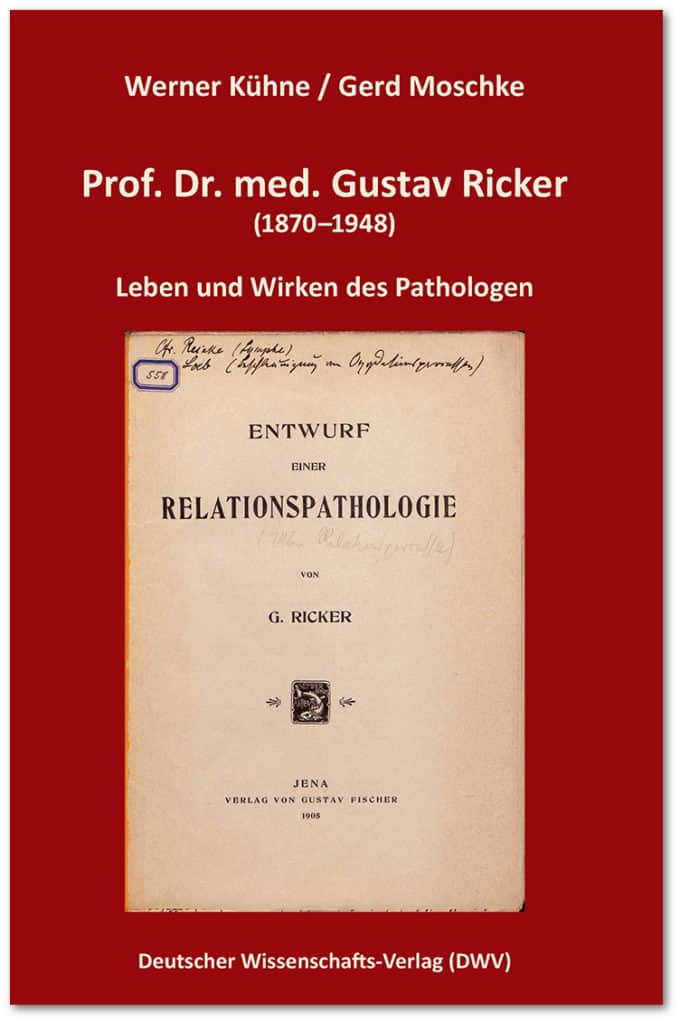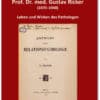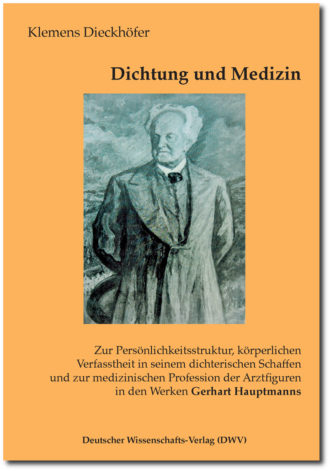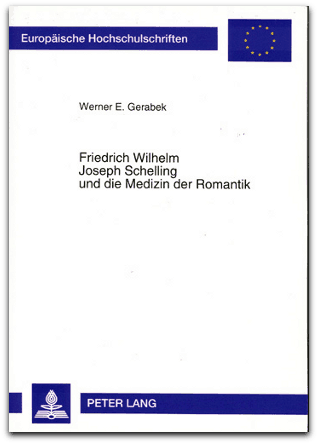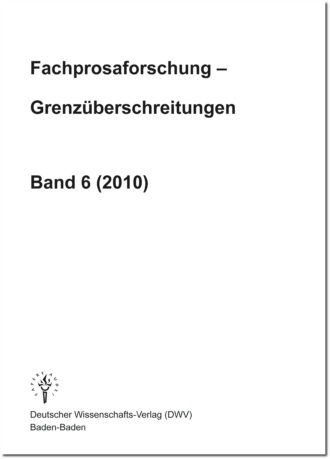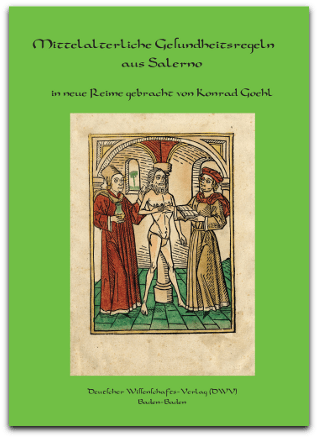Der Pathologe Prof. Dr. med. habil. Gustav August Wilhelm Joseph Ricker (1870–1948) gilt als Begründer der Relationspathologie, die über 50 Jahre lang die deutschen Mediziner in den verschiedensten Fachzeitschriften sowie in Lehre und Forschung immer wieder zu Diskussionen über Krankheitsprozesse und ihre Verläufe angeregt hat. Mit seiner Arbeit an einem neuen Krankheitskonzept in der deutschen Medizin hat er eine Brücke aus dem 19. Jahrhundert bis in unsere Zeit hinein geschlagen. Ricker nahm als Mediziner auch die Philosophie zu Hilfe, um seine medizinisch-wissenschaftlichen Erkenntnisse und seine Arbeitsmethodik wissenschaftstheoretisch zu begründen. Auf seine Art bekräftigte er ein Verhältnis von Philosophie und Medizin, das in der Gegenwart für alle an der Diskussion zur Theorie der Medizin Beteiligten als unabdingbar gilt. Dabei war die Philosophie für ihn kein Dogma, sondern Instrument für den Fortschritt in der Naturerkenntnis. Das gab auch den Anstoß für diese Gemeinschaftsarbeit eines Pathologen mit einem Historiker und Philosophen, die beide durch ihre ehemalige Wirkungsstätte in Magdeburg mit Ricker verbunden sind. Dieses Buch widmet sich nicht nur der Darlegung und Einordnung der Erkenntnisse Rickers und seiner wissenschaftlichen Forschungen von seinen Lebzeiten bis in die Gegenwart. Es trägt durch Zitate aus dem persönlichen Nachlaß, zum Beispiel aus dem Briefwechsel mit Kollegen und seinen Aufzeichnungen, wesentlich zum Verständnis von dessen Person bei und veranschaulicht dessen große Leistungen beim Aufbau der ersten zentralen pathologischen Einrichtung in Magdeburg.
The pathologist Prof. Dr. med. habil. Gustav August Wilhelm Joseph Ricker (1870–1948) is considered to be the founder of relation pathology. For more than 50 years, this scientific method has stimulated debates on the progress of diseases und their aetiopathology among German medical scientists in several professional journals as well as in teaching and research. With his work on a new concept of diseases in German medicine, he built a bridge from the 19th century to the present. Having been a physician, Ricker also used philosophy to scientifically and methodically substantiate his medical and scientific knowledge and his methodology. In his own way, he confirmed a relationship between philosophy and medicine which is considered to be indispensable for all parties involved in the current debate on the theory of medicine. In doing so, philosophy has never been a dogma for him but an instrument for improving the knowledge of nature. This fact was the impulse for the cooperation of a pathologist with a historian and philosopher on the present manuscript, who were both connected with Ricker through their former work place in Magdeburg. This book is not only aimed at addressing the analysis and subsumption of Ricker’s findings and his scientific research from his lifetime to the present days. It is also intended to essentially contribute to a better understanding of Ricker’s personality by introducing excerpts of his estate, e.g. correspondence with his colleagues and personal records. Finally, it illustrates his outstanding contribution to the establishment of the first central pathological institution in Magdeburg.

